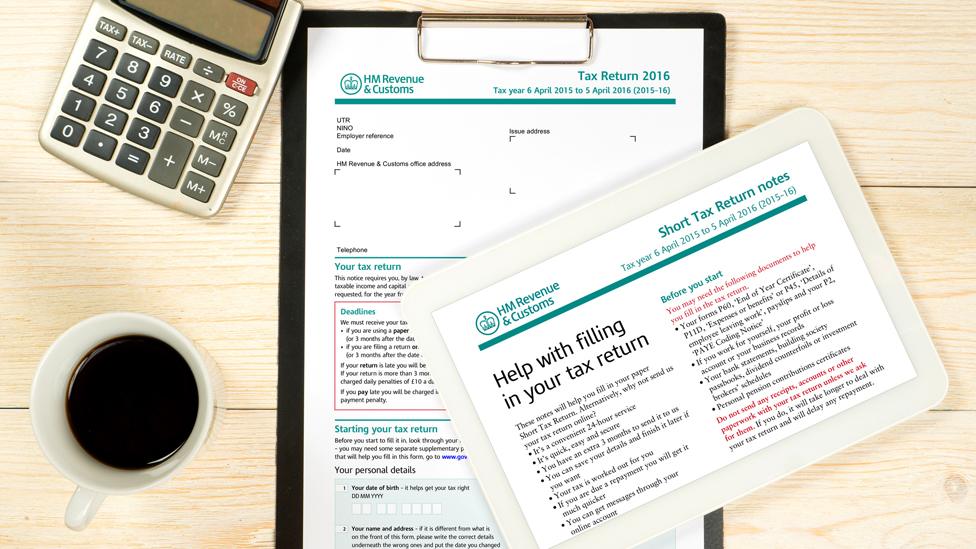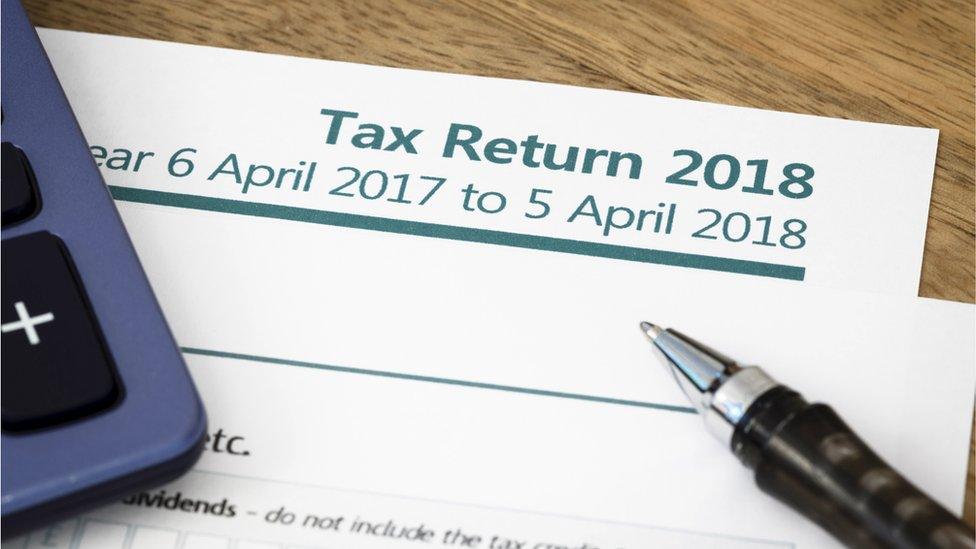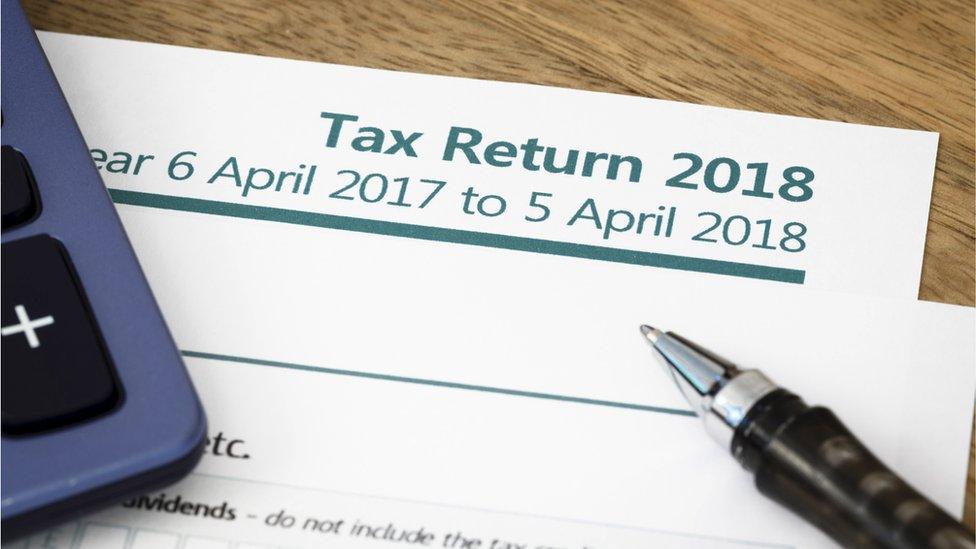HMRC Loan Charge: Self-employed fear 'financial ruin'
- Published
- comments

Self-employed workers from Wales fear they face financial ruin after becoming embroiled in a tax avoidance scheme.
One says she could face a bill of about £200,000, despite insisting she made no money from the scheme. Another fears losing his home.
At least 1,000 Welsh freelance workers could be affected by the government "loan charge" measure from April.
HMRC say that it is unfair to ordinary taxpayers to let anybody benefit from contrived tax avoidance.
It said the UK government has taken action to ensure that everybody pays the tax they owe.
But campaigner Jo Maugham QC said the government "did too little to warn people of the risks attached to these arrangements" and called for the tax advice industry to be regulated.
"Anybody - including criminals - can offer tax advice, can sell tax products or mis-sell tax products and they do so, knowing that they'll walk away with all the commissions that they earn without having any real responsibilities," he said.

What is it about?
The 2019 Loan Charge, external is a government measure aimed at tackling a type of employment tax avoidance they call "disguised remuneration".
Moneybox: Workers face tax choice
A common scenario is as follows:
The employing company paid money into an "umbrella company"
The umbrella firm gave "loans" to the self-employed worker
Because no "salary" had been paid, the employing firm paid no employer national insurance
The self-employed worker paid no tax or national insurance on the "loan" payment providing they paid some "interest" - which would be much less than the tax
HM Revenue and Customs (HMRC) say the "loans" were never paid back and were in fact "disguised" pay
However many freelancers claim they paid a fee for what they thought was an administrative arrangement and did not benefit financially.
The measure means all income tax and national insurance on payments dating back to 1999 should be settled before 5 April 2019. After that, an extra charge on any outstanding loans will be introduced.

The Loan Charge Action Group says for years contractors fully declared these loans in their tax returns, but this retrospective measure means thousands face large demands for payment, and are facing financial ruin.
However, HMRC says flexible payment arrangements are available to anybody who has genuine difficulty paying what is owed and is encouraging people to settle with them as soon as possible.
They say the median settlement is worth £13,000.

'It's the first thing I think about in the morning'
The two people we talked to - who did not want to be identified - are yet to receive a settlement offer. Both paid a fee as part of their loan scheme and claim they did not benefit financially.
"Hannah" from south east Wales - who fears a £200,000 bill - says it has had a huge impact on her life.
"It's devastating. It's the first thing I think about in the morning and it's the last thing I think about at night," she said.
"We'll lose the house, that's simple. We'll have to move. The reality is, we don't have the money to pay."
"James" from north west Wales, added: "You can't move on until you know you're going to have a home.
"If these were dangerous or illegal, why weren't they flagged up?"

Analysis
By Brian Meechan, BBC Wales business correspondent
Tax doesn't have to be taxing as the old HMRC advert says.
However, in reality it often is, particularly when there are grey areas between tax planning, tax avoidance and tax evasion.
Reasonable tax planning is very common and involves managing tax based on the rules Parliament intended.
Tax avoidance is legal but has become more unacceptable with the public in recent years, as celebrities hit the news avoiding paying tax based on the use of loopholes.
This is often called "aggressive tax avoidance".
Tax evasion is illegal.
Some people may not have much sympathy with those who find themselves facing this loan charge and it does seem certain they'll have to pay something back in tax.
But tax law is incredibly complex and changes regularly to the point where even experts can be tripped up by it.
That individual contractors are left to pick up the bill - as opposed to advisors or those running the schemes - is why many of those affected feel a bit hard done by.

Mr Maugham, a tax barrister and director of Good Law Project, said there needed to be further regulation.
"We regulate dental hygienists. Why don't we regulate tax advisors?," he said.
HMRC say they have stopped several major promoters selling avoidance schemes in recent years.
Lloyd Powell, head of the Association of Chartered Certified Accountants in Wales, said many people found themselves "caught in the middle" with no choice but to use loan schemes.
"At the time, these were legal and that's one of the concerns that's been raised.
"In certain cases, people were put into these cases by the people employing them at the time. It was either they accepted this treatment or that there was no work."
- Published23 February 2019

- Published4 December 2018

- Attribution
- Published23 October 2018
